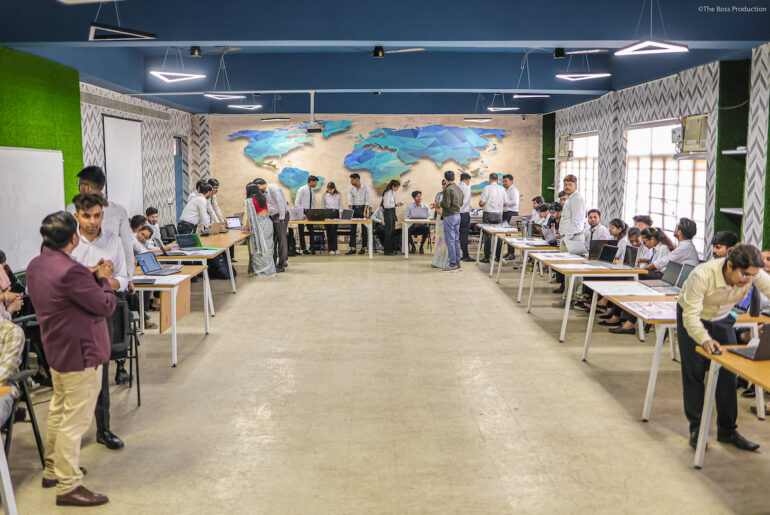What is Computer Science Engineering
Computer Science Engineering (CSE) is a field that merges the fundamentals of computer science with engineering principles to design and create computer systems and software. It involves understanding algorithms, programming languages, and the architecture of computers to solve complex problems and create innovative technology solutions.
CSE covers various topics, including programming, data structures, algorithms, database management, computer networks, operating systems, artificial intelligence, machine learning, and cybersecurity. Students learn to write efficient code, design software applications, manage databases, and ensure secure communication across networks.
The field is essential for developing and maintaining the technology that powers modern society, from everyday software applications to advanced computing systems used in research and industry. Careers in CSE are diverse and include roles such as software developer, systems analyst, data analysis, network engineer, database administrator, and cybersecurity expert.
Leading institutions like MIT, Stanford, and IITs offer top-tier CSE programs, providing students with a solid foundation in both theoretical and practical aspects of computing. With rapid advancements in technology, CSE continues to be a dynamic and evolving field, offering vast opportunities for innovation and career growth.
Some of the most opted courses in India and St. Andrews college or different Engineering college or Management colleges are as follows:-
Computer Science Engineering Course Duration

Computer Science Engineering (CSE) typically spans four years at the undergraduate level in most institutions. This duration includes a comprehensive curriculum covering core subjects such as programming, algorithms, data structures, computer engineering, software engineering, and computer architecture. Students also engage in practical sessions, projects, and internships to gain hands-on experience.
The program emphasizes both theoretical knowledge and practical skills essential for careers in application development, data science, data analysis, cybersecurity, and more. Throughout the four years, students are encouraged to innovate, collaborate, and explore emerging technologies, preparing them for dynamic roles in the ever-evolving field of computer science and engineering.
Highlights: CSE (Computer Science Engineering)

Computer Science Engineering (CSE) is a dynamic and rapidly evolving field that integrates principles from computer science and electrical engineering to develop computing systems and software.
Here are some key highlights of pursuing a degree in Computer Science Engineering:
Curriculum
The curriculum typically includes topics such as algorithms, data structures, programming languages, operating systems, database management, artificial intelligence, and network security. It focuses on both theoretical knowledge and practical skills.
Career Opportunities
Graduates have diverse career paths available in industries like software development, IT consulting, cybersecurity, artificial intelligence, and data analytics. Companies ranging from tech giants to startups actively seek CSE graduates.
Technological Impact
CSE professionals are at the forefront of technological innovation, developing new software, solving complex problems, and driving advancements in fields such as robotics, virtual reality, and machine learning.
Interdisciplinary Applications
The field offers opportunities to work on interdisciplinary projects that combine computer science with other areas like healthcare, finance, environmental science, and automotive technology, which broadens career options.
Research and Development
Many CSE graduates engage in cutting-edge research in areas like quantum computing, bioinformatics, and computational physics. This often leads to groundbreaking inventions and improvements in existing technologies.
Global Demand
The demand for skilled computer engineers is high worldwide, ensuring global career opportunities and competitive salaries.
Continual Learning
Due to the rapidly changing nature of technology, professionals in this field are often lifelong learners, regularly updating their skills through certifications, workshops, and further studies.
Importance of CSE
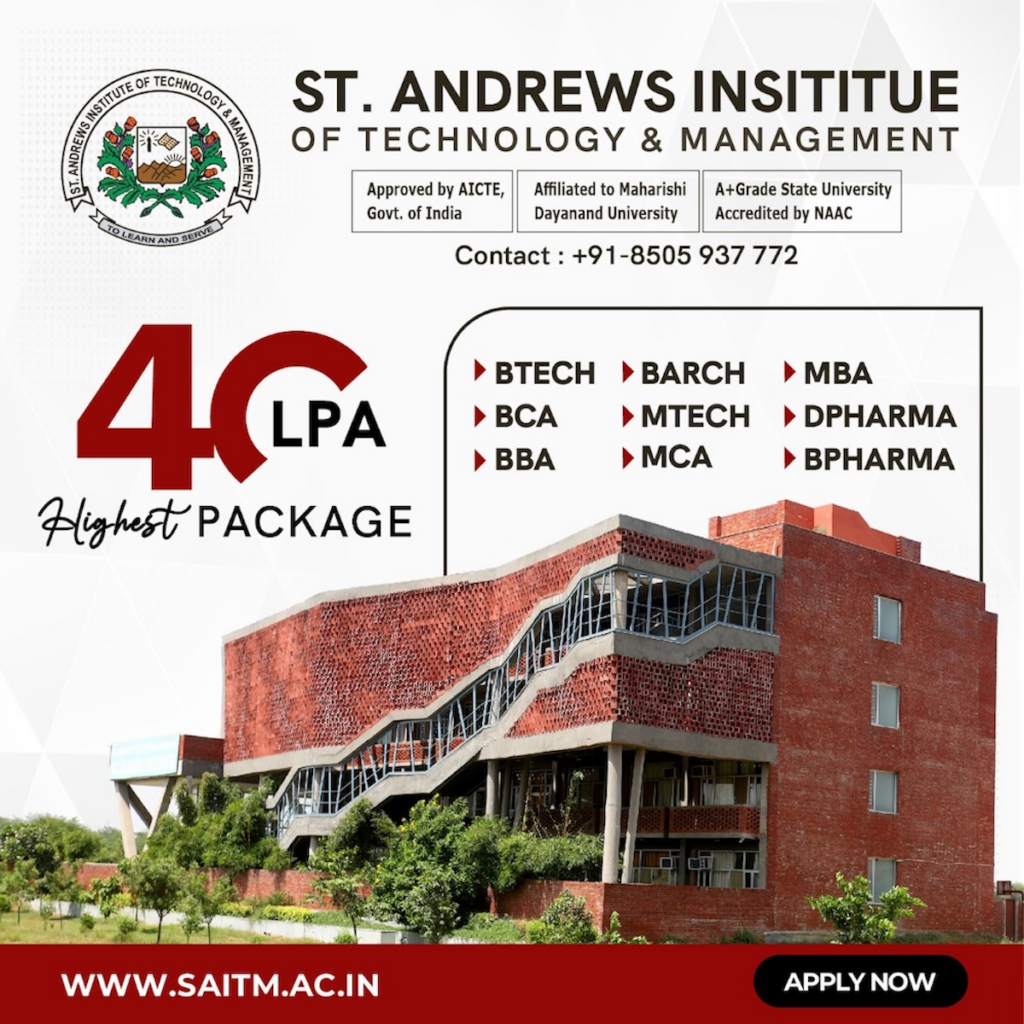
Computer Science Engineering (CSE) holds immense importance in today’s world for several compelling reasons:
Technological Advancement
CSE drives technological progress by developing new software applications, algorithms, and computing systems. It enables innovations in AI, machine learning, robotics, and other emerging fields that shape industries and improve daily life.
Global Connectivity
CSE plays a pivotal role in building and maintaining global communication networks and internet infrastructure. It connects people, businesses, and information across borders, facilitating global collaboration and economic growth.
Digital Transformation
In the era of digital transformation, CSE transforms industries by automating processes, enhancing efficiency, and enabling new business models. It powers e-commerce, digital payments, online education, and telemedicine, among others.
Data Management and Analysis
CSE equips professionals with skills to manage, analyze, and derive insights from vast amounts of data. This is critical for informed decision-making in sectors like healthcare, finance, and urban planning.
Cybersecurity
With increasing cyber threats, CSE is essential for developing robust cybersecurity measures to protect sensitive information, networks, and systems from cyberattacks and data breaches.
Career Opportunities
CSE offers diverse career opportunities in application development, data science, data analysis, cybersecurity, cloud computing, and more. It continues to be one of the most in-demand fields globally, offering competitive salaries and growth prospects.
Innovation and Research
CSE fosters innovation through research in areas such as AI, machine learning, quantum computing, and bioinformatics. It pushes the boundaries of what’s possible, contributing to scientific advancements and societal progress.
Admission Process for Computer Science Engineering
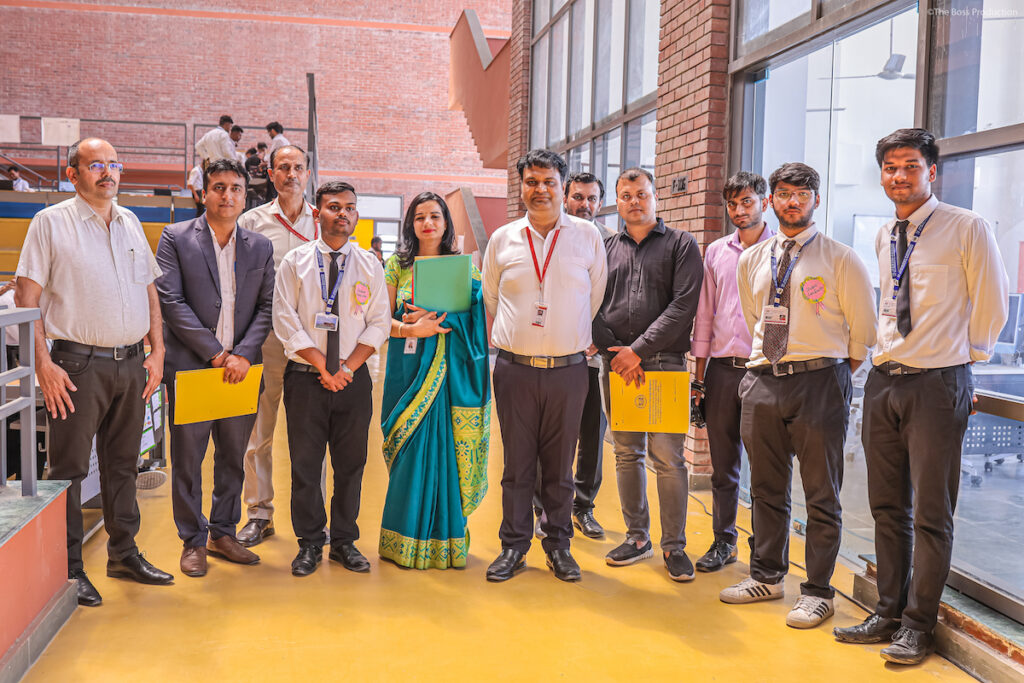
Here’s a detailed overview of the admission process:
Eligibility Criteria
- Educational Qualification: Candidates are required to have finished their 10+2 or equivalent education with Physics, Chemistry, and Mathematics as mandatory subjects.
- Minimum Marks: A minimum percentage in 10+2 (usually 50-60%) as specified by the respective institutions.
Entrance Exams
- Candidates need to appear for relevant entrance exams such as JEE Main, JEE Advanced, BITSAT, VITEEE, SRMJEEE, or state-level exams like MHT CET, KCET, WBJEE, etc.
- Registration for these exams typically starts several months before the exam date. Candidates must fill out the application form, pay the exam fee, and download the admit card.
Entrance Exam Results
- Results are usually announced a few weeks after the exam.
- For JEE Main, the top candidates are eligible to appear for JEE Advanced.
Counseling and Seat Allotment
- Based on the entrance exam scores, candidates are invited for counseling sessions.
- For JEE Main and JEE Advanced, the Joint Seat Allocation Authority (JoSAA) conducts the counseling process.
- State-level counseling is conducted by respective state authorities.
- During counseling, candidates must choose their preferred colleges and courses.
- Seat allotment is based on merit, preferences, and availability of seats.
Document Verification and Admission
- Candidates must verify their documents, including 10+2 mark sheets, entrance exam scorecards, identity proof, and other required certificates.
- After document verification, candidates pay the admission fee to confirm their seat.
Computer Science Engineering Eligibility Criteria

The general eligibility criteria for Computer Science Engineering (CSE) programs are as follows:
Undergraduate (Bachelor’s) Programs
Educational Qualifications
- Completion of secondary education (high school diploma or equivalent).
- Strong foundation in mathematics and science (especially physics and chemistry).
Examinations
- High scores in relevant standardized tests or entrance exams (e.g., SAT, ACT, JEE in India).
Grades
- Minimum GPA or percentage requirement in previous academic records (typically around 60-70% or equivalent).
English Proficiency
- For non-native English speakers, proof of English proficiency through tests like TOEFL or IELTS.
Additional Requirements
- Some programs may require letters of recommendation, personal statements, or interviews.
Postgraduate (Master’s) Programs
Educational Qualifications
- A bachelor’s degree in Computer Science, Information Technology, or a related field.
- Some programs may accept students from other engineering or science backgrounds with additional coursework.
Examinations
- Scores from standardized tests like the GRE (Graduate Record Examination) may be required.
Grades
- A minimum GPA requirement in the undergraduate program (typically around 3.0 on a 4.0 scale or equivalent).
Work Experience
- Some programs may prefer or require relevant work experience.
English Proficiency
- For non-native English speakers, proof of English proficiency through tests like TOEFL or IELTS.
Additional Requirements
- Letters of recommendation, a statement of purpose, and possibly an interview.
Specializations in Computer Science Engineering

Here are some common specializations in CSE:
Artificial Intelligence (AI) and Machine Learning (ML)
Focuses on creating intelligent systems and algorithms that can learn from data and make decisions.
Topics include neural networks, natural language processing, computer vision, and robotics.
Data Science and Big Data Analytics
Involves analyzing large datasets to extract meaningful insights and patterns.
Covers data mining, statistical analysis, data visualization, and database management.
Cybersecurity:
Focuses on protecting systems, networks, and data from cyber threats.
Topics include cryptography, network security, ethical hacking, and information security management.
Software Engineering
Deals with designing, developing, and maintaining software applications.
Covers software development methodologies, project management, software testing, and quality assurance.
Internet of Things (IoT)
Involves connecting physical devices to the internet to collect and exchange data.
Topics include integrated systems, sensor networks, communication protocols, and IoT architecture.
Cloud Computing
Focuses on delivering computing services over the internet.
Covers cloud architecture, virtualization, cloud services (IaaS, PaaS, SaaS), and cloud security.
Blockchain Technology
Deals with decentralized and distributed ledger technology.
Topics include cryptographic algorithms, smart contracts, consensus mechanisms, and blockchain applications.
Computer Networks
Focuses on the design, implementation, and management of network systems.
Covers network protocols, wireless networks, network security, and network architecture.
Human-Computer Interaction (HCI)
Involves designing user-friendly interfaces and interactions between humans and computers.
Topics include user experience (UX) design, user interface (UI) design, usability testing, and interactive systems.
Robotics
Deals with designing and programming robots for various applications.
Covers robotics kinematics, control systems, robot perception, and autonomous systems.
Scope of Computer Science Engineering

Here are some key aspects that highlight the scope of CSE:
Industry Demand
CSE graduates are in high demand across various industries including IT services, finance, healthcare, e-commerce, and telecommunications. They play crucial roles in developing software applications, managing IT infrastructure, and implementing cutting-edge technologies like AI, automated learning, and cybersecurity.
Emerging Technologies
CSE professionals are at the forefront of innovation, driving developments in artificial intelligence, data analytics, cloud computing, and IoT. These technologies are transforming industries and creating new opportunities for CSE specialists.
Career Diversity
Graduates can pursue diverse career paths as software developers, data scientists, cybersecurity analysts, system architects, and more. The versatility of skills acquired in CSE allows professionals to adapt to evolving job roles and technological trends.
Entrepreneurship
CSE fosters entrepreneurial spirit, encouraging graduates to innovate and launch tech startups. The field offers opportunities to develop new software products, solutions, and services that address market needs.
Research and Academia
CSE also opens doors to research and academic careers in universities, research institutions, and labs. This involves conducting groundbreaking research in areas such as AI, machine learning, computational biology, and more.
Entrance Exams for Computer Science Engineering Course

Here are the top entrance exams for computer science engineering course:
JEE Main (Joint Entrance Examination Main)
- Conducted by: National Testing Agency (NTA)
- Purpose: Admission to NITs, IIITs, and other centrally funded institutions.
- Eligibility: 10+2 with Physics, Chemistry, and Mathematics.
JEE Advanced
- Conducted by: One of the IITs (Indian Institutes of Technology) on a rotational basis.
- Purpose: Admission to the IITs.
- Eligibility: Top candidates from JEE Main are eligible to appear.
BITSAT (Birla Institute of Technology and Science Admission Test)
- Conducted by: BITS Pilani
- Purpose: Admission to BITS Pilani and its campuses in Goa, Hyderabad, and Dubai.
- Eligibility: 10+2 with Physics, Chemistry, and Mathematics.
VITEEE (Vellore Institute of Technology Engineering Entrance Exam)
- Conducted by: VIT University
- Purpose: Admission to VIT University campuses.
- Eligibility: 10+2 with Physics, Chemistry, and Mathematics/Biology.
Fees for Computer Science Engineering Courses

Here’s a general overview of the fee structure for Computer Science Engineering courses:
Government/Public Institutions (IITs, NITs, IIITs, State Universities)
- Tuition Fees: Typically lower compared to private institutions.
- Annual Fees: ₹20,000 to ₹2 lakhs per annum depending on the institute and category (general, SC/ST/OBC, economically weaker sections).
Private Institutions
- Tuition Fees: Higher than government institutions.
- Annual Fees: ₹1 lakh to ₹5 lakhs per annum or more depending on the institution, facilities, and location.
Factors Affecting Fees
- Institute Reputation: Top-tier institutions generally have higher fees.
- Location: Fees can vary based on the cost of living in the city or region.
- Infrastructure and Facilities: Institutions offering state-of-the-art labs, libraries, and accommodation may have higher fees.
- Scholarships and Financial Aid: Availability of scholarships and financial aid can offset costs for eligible students.
Additional Costs
- Hostel and Accommodation: Fees for on-campus accommodation if available.
- Books and Materials: Costs for textbooks, study materials, and software licenses.
- Examination and Miscellaneous Fees: Charges for exams, labs, and other miscellaneous expenses.
Top Government Computer Science Engineering Colleges in India
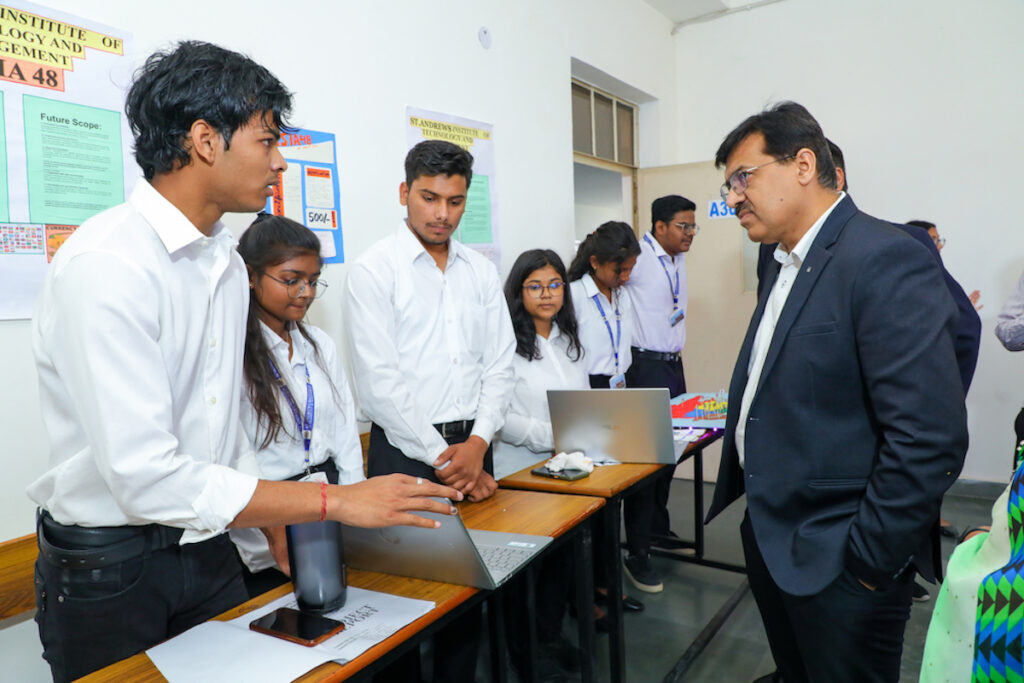
Here are some top government colleges for Computer Science Engineering (CSE) in India.
Indian Institute of Science (IISc), Bangalore
Location: Bangalore, Karnataka
Highlights: Renowned for its research output, collaborations with industry, and academic excellence. Offers strong programs in CSE and allied fields.
Delhi Technological University (DTU), Delhi
Location: Delhi
Highlights: Formerly known as Delhi College of Engineering (DCE), it is one of the oldest engineering colleges in India with a strong focus on research and industry partnerships.
Netaji Subhas University of Technology (NSUT), Delhi
Location: Delhi
Highlights: Offers comprehensive programs in engineering and technology, known for its campus facilities and industry connections.
College of Engineering, Pune (COEP)
Location: Pune, Maharashtra
Highlights: One of the oldest engineering colleges in India, known for its strong academic programs, vibrant campus life, and historical significance.
Jadavpur University, Kolkata
Location: Kolkata, West Bengal
Highlights: Well-regarded for its engineering and technology programs, including CSE. Known for its strong faculty and research activities.
Birla Institute of Technology and Science (BITS), Pilani
Location: Pilani, Rajasthan
Highlights: A deemed university known for its quality education, campus placements, and research-oriented approach in CSE and other disciplines.
International Institute of Information Technology (IIIT), Hyderabad
Location: Hyderabad, Telangana
Highlights: Focuses on research and education in Information Technology, known for its specialized programs in CSE and strong placement records.
Punjab Engineering College (PEC), Chandigarh
Location: Chandigarh
Highlights: Known for its strong engineering programs, research initiatives, and placement opportunities in CSE and other disciplines.
Visvesvaraya National Institute of Technology (VNIT), Nagpur
Location: Nagpur, Maharashtra
Highlights: One of the leading engineering institutes in central India, known for its academic rigor, campus facilities, and strong faculty in CSE and related fields.
Top Private Computer Science Engineering Colleges in India
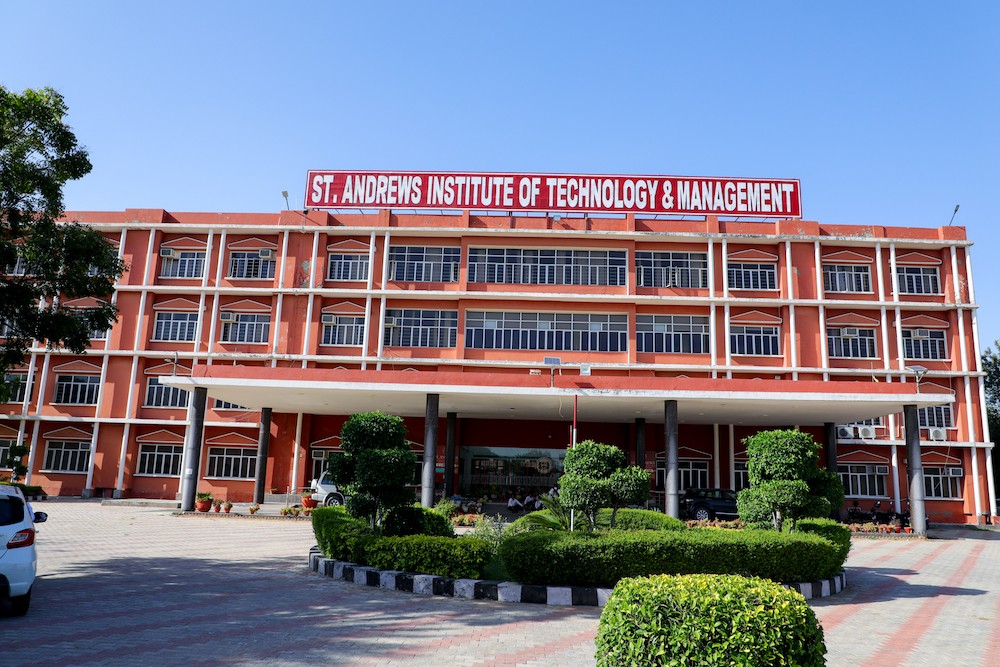
Here are some top private colleges in India for Computer Science Engineering:
Birla Institute of Technology and Science (BITS), Pilani
- Location: Pilani, Rajasthan
- Highlights: Offers flexible academic structure with a Practice School program, strong focus on research and innovation.
Vellore Institute of Technology (VIT)
- Location: Vellore, Tamil Nadu
- Highlights: Known for its high placement rates and Offers a wide range of specializations within Computer Science.
Thapar Institute of Engineering and Technology
- Location: Patiala, Punjab
- Highlights: Focuses on interdisciplinary learning and research and modern campus with advanced facilities.
PES University
- Location: Bangalore, Karnataka
- Highlights: Known for its strong industry interface and placements and focus on research and innovation.
Amrita Vishwa Vidyapeetham
- Location: Coimbatore, Tamil Nadu
- Highlights: Strong emphasis on research and development and high placement rates.
International Institute of Information Technology (IIIT)
- Location: Hyderabad, Telangana
- Highlights: Renowned for its research contributions in Computer Science and high-quality faculty with extensive research experience.
Jaypee Institute of Information Technology (JIIT)
- Location: Noida, Uttar Pradesh
- Highlights: Focus on both theoretical and practical aspects of Computer Science.
Sastra Deemed University
- Location: Thanjavur, Tamil Nadu
- Highlights: Known for its strong emphasis on academic excellence and high placement statistics with reputed companies.
Computer Science Engineering Syllabus and Subjects

Here’s a detailed breakdown of typical subjects and their importance:
Mathematics and Basic Sciences
- Calculus and Differential Equations: Fundamental for modeling and analyzing algorithms and systems.
- Discrete Mathematics: Crucial for understanding logic, sets, relations, and combinatorial structures used in algorithm design and analysis.
- Probability and Statistics: Essential for analyzing data, making decisions under uncertainty, and understanding probabilistic algorithms.
Programming and Software Development
- Programming Fundamentals: Introduction to programming languages (like C, C++, Java, Python) and problem-solving techniques.
- Data Structures: Study of fundamental data structures (arrays, linked lists, trees, graphs) and their applications in algorithm design.
- Algorithms: Analysis and design of efficient algorithms for sorting, searching, graph traversal, etc.
- Object-Oriented Programming: Principles of encapsulation, inheritance, polymorphism, and their application in software design.
- Software Engineering: Processes, methodologies (like Agile), and tools for developing large-scale software systems.
Computer Architecture and Organization
- Computer Organization: Study of CPU architecture, memory systems, and input/output mechanisms.
- Operating Systems: Concepts of process management, memory management, file systems, and concurrency.
- Computer Networks: Fundamentals of network architecture, protocols, and communication technologies.
Database Management Systems
- Database Design: Conceptual, logical, and physical design of databases.
- SQL and NoSQL Databases: Query languages and management systems for relational and non-relational databases.
- Big Data: Techniques for processing, storing, and analyzing large-scale datasets.
Artificial Intelligence and Machine Learning:
- AI Fundamentals: Introduction to AI, knowledge representation, search algorithms.
- Machine Learning: Algorithms (supervised, unsupervised, reinforcement learning), data preprocessing, model evaluation.
- Natural Language Processing: Processing and analyzing human language data.
Cybersecurity::
- Network Security: Techniques for securing communication networks and systems.
- Cryptography: Principles of encryption, decryption, and digital signatures.
- Ethical Hacking: Techniques for identifying and addressing security vulnerabilities.
Electronics and Electrical Engineering
- Digital Electronics: Principles of digital circuits and logic design.
- Circuit Theory: Analysis and design of electronic circuits.
- Signals and Systems: Theory and applications of signals and systems in engineering.
Software Development and Tools
- Web Development: Front-end (HTML, CSS, JavaScript) and back-end (Node.js, Django, Flask) development for web applications.
- Mobile App Development: Platforms (iOS, Android) and frameworks (React Native, Flutter) for mobile application development.
- Version Control Systems: Tools like Git for collaborative software development.
Project Management and Professional Practices
- Software Project Management: Planning, scheduling, and controlling software projects.
- Quality Assurance: Techniques for ensuring software quality through testing and verification.
- Ethics and Professional Practices: Legal and ethical considerations in computing professions.
Electives and Specializations
- Robotics: Principles of robotics and autonomous systems.
- Cloud Computing: Concepts and technologies for cloud-based services and infrastructure.
- Data Science: Techniques for extracting knowledge and insights from data.
- Bioinformatics: Applications of computational techniques in biological research.
Career Scope after Computer Science Engineering

Here are some key career paths you can pursue after completing your degree:
Software Development
- Roles: Software Engineer, Developer, Programmer
- Scope: Designing, coding, testing, and maintaining software applications. Opportunities in IT companies, startups, and tech giants like Google, Microsoft, and Amazon.
Data Science and Analytics
- Roles: Data Scientist, Data Analyst, Machine Learning Engineer
- Scope: For computer science students, the ability to analyze large datasets to extract meaningful insights and develop predictive models is highly sought after in sectors such as finance, healthcare, and e-commerce.
Artificial Intelligence and Machine Learning
- Roles: AI Engineer, Machine Learning Specialist
- Scope: Developing smart systems and algorithms. Opportunities in research institutions, tech companies, and autonomous systems.
Cybersecurity ::
- Roles: Security Analyst, Ethical Hacker, Cybersecurity Consultant
- Scope: Protecting systems and networks from cyber threats. Demand in government agencies, private companies, and cybersecurity firms.
Cloud Computing:
- Roles: Cloud Engineer, Cloud Architect, DevOps Engineer
- Scope: Designing and managing cloud infrastructure. Opportunities with cloud service providers like AWS, Google Cloud, and Microsoft Azure.
Networking
- Roles: Network Engineer, System Administrator
- Scope: Managing and maintaining network infrastructure. Opportunities in telecom companies, IT services, and enterprises with large networks.
Web Development
- Roles: Front-End Developer, Back-End Developer, Full-Stack Developer
- Scope: Building and maintaining websites and web applications. Opportunities in tech companies, digital agencies, and freelancing.
Mobile App Development
- Roles: Mobile App Developer (iOS/Android)
- Scope: Developing mobile applications for smartphones and tablets. Opportunities in startups, tech companies, and app development agencies.
Game Development
- Roles: Game Developer, Game Designer, Game Tester
- Scope: Creating video games for various platforms. Opportunities in gaming companies and indie game development.
Embedded Systems
- Roles: Embedded Systems Engineer, Firmware Developer
- Scope: Developing software for embedded systems in devices. Opportunities in automotive, consumer electronics, and IoT companies.
Database Management
- Roles: Database Administrator, Database Developer
- Scope: Managing and organizing data in databases. Opportunities in IT services, finance, healthcare, and other data-driven sectors.
Research and Development
- Roles: Research Scientist, Research Engineer
- Scope: Conducting cutting-edge research in computer science. Opportunities in academic institutions, research labs, and tech companies.
Consulting
- Roles: IT Consultant, Technology Consultant
- Scope: Providing expert advice to businesses on technology solutions. Opportunities in consulting firms and independent consulting.
Entrepreneurship
- Roles: Startup Founder, CTO
- Scope: Starting your own tech company or product. Opportunities to innovate and create new market solutions.
Higher Education and Academia
- Roles: Professor, Lecturer, Academic Researcher
- Scope: Teaching and conducting research in universities and colleges. Opportunities to shape the next generation of computer scientists.
Top Recruiters for Computer Science Graduates

Here are some of the top recruiters known for hiring CSE graduates in India and globally:
Technology Giants
Microsoft
Amazon
Apple
IT Services and Consulting
TCS (Tata Consultancy Services)
Infosys
Wipro
Accenture
Cognizant
Finance and Banking
Goldman Sachs
J.P. Morgan
Morgan Stanley
Citibank
HSBC
E-commerce and Retail
Amazon
Flipkart
Paytm
Walmart
Alibaba
Automotive and Manufacturing
Tesla
Toyota
General Motors
BMW
ABB
Healthcare and Pharmaceuticals
Siemens Healthineers
GE Healthcare
Roche
Novartis
Johnson & Johnson
Telecommunications
AT&T
Verizon
Ericsson
Nokia
Huawei
Startup Ecosystem
Uber
Airbnb
Zomato
Swiggy
Ola
Government and Public Sector
ISRO (Indian Space Research Organisation)
DRDO (Defence Research and Development Organisation)
BARC (Bhabha Atomic Research Centre)
NIC (National Informatics Centre)
Public Sector Undertakings (PSUs)
Education and Research Institutions
IITs (Indian Institutes of Technology)
NITs (National Institutes of Technology)
IIITs (Indian Institutes of Information Technology)
Research Labs
Universities
Salary for Computer Science Engineers
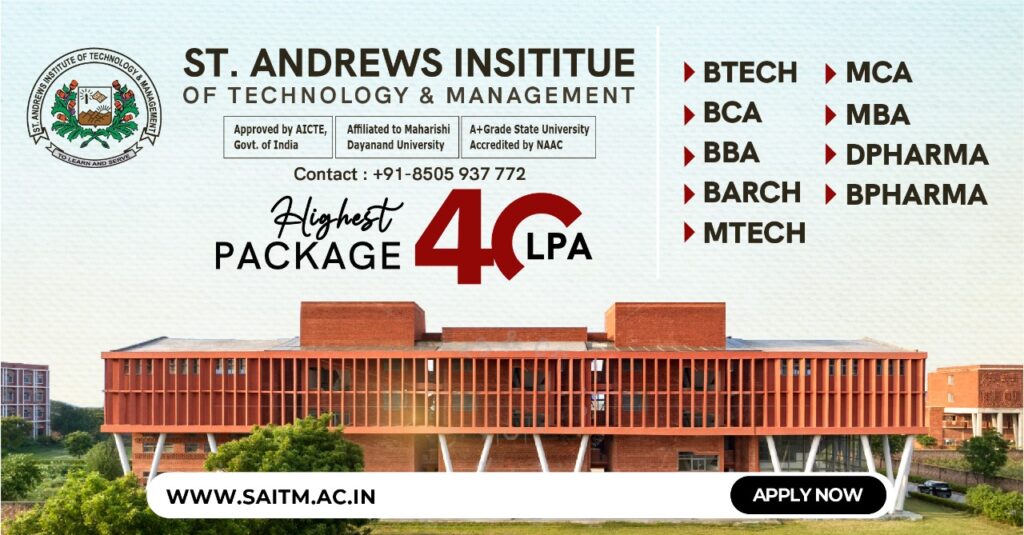
Here’s a general overview of salary ranges based on different levels of experience in India:
Entry-Level (0-2 years of experience)
- Average Salary: ₹3.5 lakhs to ₹6 lakhs per annum
- Roles: Junior Software Engineer, Trainee Developer, Entry-level Data Analyst
Mid-Level (2-5 years of experience)
- Average Salary: ₹6 lakhs to ₹12 lakhs per annum
- Roles: Software Engineer, Web Developer, Systems Engineer, Data Scientist
Senior-Level (5+ years of experience)
- Average Salary: ₹12 lakhs to ₹25 lakhs+ per annum
- Roles: Senior Software Engineer, Tech Lead, Data Architect, Project Manager
FAQs
What is Computer Science Engineering?
Computer Science Engineering (CSE) combines principles from computer science and engineering to design, develop, and enhance computer software and hardware systems. It encompasses a wide range of disciplines, including algorithms, data structures, software development, networking, and computer architecture. Computer Science and Engineering professionals innovate in fields such as artificial intelligence, cybersecurity, and mobile computing.
They tackle complex problems, from designing efficient algorithms to creating robust software applications and improving computational technologies. CSE drives technological advancements in various sectors, from business and entertainment to healthcare and education, shaping the digital future with innovations that enhance efficiency, connectivity, and computational capabilities.
What does a computer science engineer do?
A computer science engineer designs, develops, and evaluates software, hardware, and computing systems. They create algorithms, write code, and build applications that solve problems or improve efficiency in various industries. Computer engineers also maintain and troubleshoot systems, ensuring they operate securely and efficiently.
The core computer science concepts like artificial intelligence, cybersecurity, database management, or networking, applying their skills to innovate and advance technology. Beyond technical expertise, they collaborate with teams, analyze user needs, and stay updated on emerging technologies to deliver robust solutions that meet the demands of modern society and businesses.
What is the Computer Science Engineering salary?
The salary in Computer Science Engineering (CSE) varies widely based on factors like location, experience, specialization, and employer size. Entry-level positions typically start around ₹3-6 lakhs per annum in India, while mid-level positions can earn ₹8-15 lakhs per annum. Senior roles or those with significant experience and expertise can command salaries exceeding ₹20 lakhs annually.
In countries like the United States, salaries range from $60,000 to over $150,000 per year depending on similar factors. CSE professionals in roles such as software engineers, web developer, data engineers, data scientists, and cybersecurity analysts often receive competitive compensation packages due to high demand and specialized skills.
Is CS engineering a good career?
Yes, Computer Science Engineering (CSE) offers a promising career path. With rapid advancements in technology, CSE professionals are in high demand across industries globally. Careers in CSE provide opportunities for innovation, problem-solving, and continuous learning. Graduates can pursue Computer engineering jobs in software development, data science, cybersecurity, artificial intelligence, and various other fields.
The field offers competitive salaries, job stability, and the chance to work on cutting-edge technologies that shape the future. Moreover, CSE professionals play a pivotal role in driving digital transformation, making it a rewarding and dynamic career choice with ample growth prospects.
What is computer science engineering course about?
Computer Science Engineering (CSE) focuses on the design, implementation, and management of software systems and computing infrastructure. It covers a broad spectrum of topics including algorithms, computer programming, database management, artificial intelligence, data networks, and cybersecurity.
CSE integrates theoretical foundations with practical applications to develop solutions for real-world problems in various domains such as technology, business, healthcare, and entertainment. Graduates of CSE are equipped with skills in software development, system design, data analysis, and problem-solving, making them crucial contributors to innovation and technological advancement in today’s digital age.

